The giant bee was first discovered in 1,859, but since has only officially sighted once. Now, researchers have found a specimen alive and well.
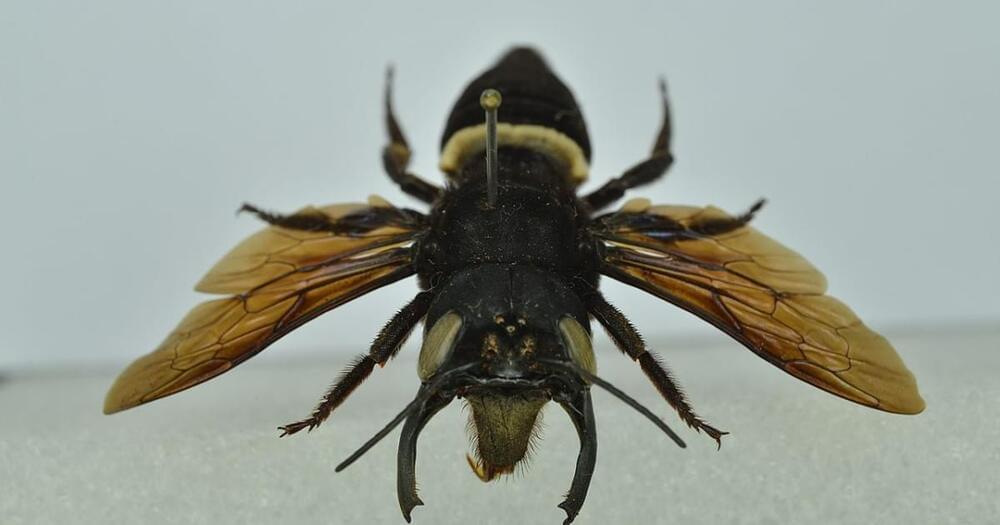

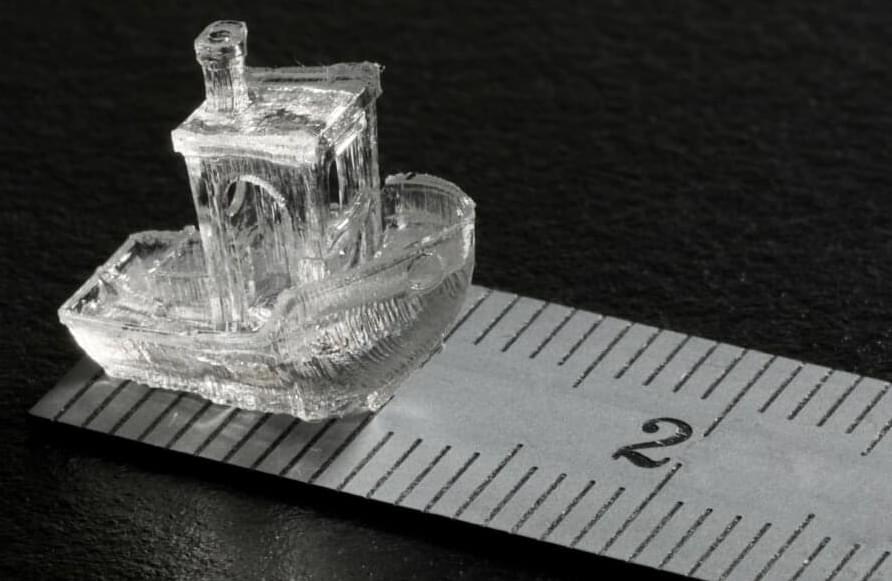
Circa 2020
Researchers have created a new 3D printing technique that could replace traditional 3D printers that take far to long to create desired objects.
The problem with traditional 3D printers is that they work in horizontal layers. This process is the bane of 3D printing, as it means that, depending on the size of the object, it will take time to construct. What if the printer could build the entire model all at once, instead of layer-by-layer? Researchers from Switzerland’s Ecole polytechnique federale de Lausanne (EPFL) have done just that with their new invention.

A virtual robot arm has learned to solve a wide range of different puzzles —stacking blocks, setting the table, arranging chess pieces—without having to be retrained for each task. It did this by playing against a second robot arm that was trained to give it harder and harder challenges.
Self play: Developed by researchers at OpenAI, the identical robot arms—Alice and Bob—learn by playing a game against each other in a simulation, without human input. The robots use reinforcement learning, a technique in which AIs are trained by trial and error what actions to take in different situations to achieve certain goals. The game involves moving objects around on a virtual tabletop. By arranging objects in specific ways, Alice tries to set puzzles that are hard for Bob to solve. Bob tries to solve Alice’s puzzles. As they learn, Alice sets more complex puzzles and Bob gets better at solving them.
Visit https://brilliant.org/isaacarthur/ to get started learning STEM for free, and the first 200 people will get 20% off their annual premium subscription.
Science Fiction often shows us alien civilizations so advanced they are godlike, but how realistic are they, and what would such entities be like?
Biocene 2022 Registration: https://oai.org/biocene-2022-event-registration/
International Space Development Conference Registration: https://isdc2022.nss.org.
Visit our Website: http://www.isaacarthur.net.
Support us on Patreon: https://www.patreon.com/IsaacArthur.
Support us on Subscribestar: https://www.subscribestar.com/isaac-arthur.
Facebook Group: https://www.facebook.com/groups/1583992725237264/
Reddit: https://www.reddit.com/r/IsaacArthur/
Twitter: https://twitter.com/Isaac_A_Arthur on Twitter and RT our future content.
SFIA Discord Server: https://discord.gg/53GAShE
Listen or Download the audio of this episode from Soundcloud: Episode’s Audio-only version: https://soundcloud.com/isaac-arthur-148927746/godlike-aliens.
Episode’s Narration-only version: https://soundcloud.com/isaac-arthur-148927746/godlike-aliens-narration-only.
Credits:
Alien Civilizations: Godlike Aliens.
Science & Futurism with Isaac Arthur.
Episode 341, May 5, 2022
Written, Produced & Narrated by Isaac Arthur.
Editors:
Andrew Nelson.
Curt Hartung.
David McFarlane.
Cover Art:

Quantum machine learning is a field of study that investigates the interaction of concepts from quantum computing with machine learning.
For example, we would wish to see if quantum computers can reduce the amount of time it takes to train or assess a machine learning model. On the other hand, we may use machine learning approaches to discover quantum error-correcting algorithms, estimate the features of quantum systems, and create novel quantum algorithms.
But the bizarre invention could soon become a reality, as scientists have taken a major step forward in the development of electronic skin with integrated artificial hairs.
Hairs allow for ‘natural touch’ and let us detect different sensations such as rough and smooth, as well as the direction the touch is coming from.
Researchers from Chemnitz University of Technology say the ‘e-skin’ could have a range of uses in the future, including skin replacement for humans and artificial skin for humanoid robots.
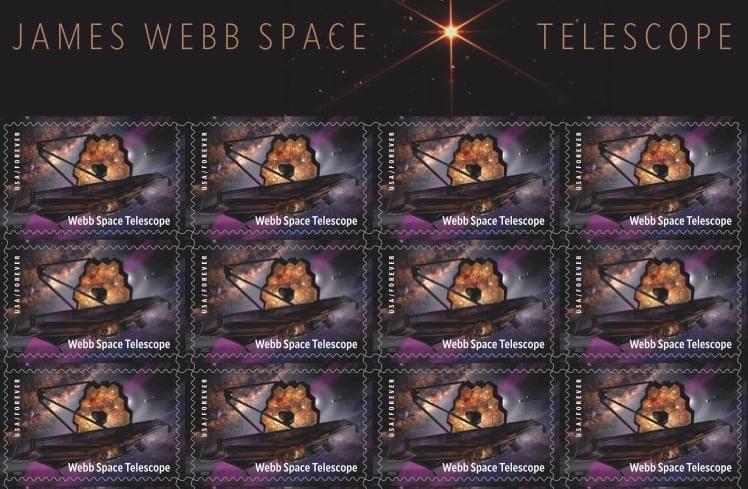
As the James Webb Space Telescope settles into a solar orbit, another version of the satellite will soon be whizzing around Earth.
A new stamp featuring the most powerful space telescope ever built will be issued by the United States Postal Service (USPS) later this year, giving collectors of space memorabilia (or stamps!) something new to add to their collection, and letter writers something to stick on their envelopes.
“Celebrate NASA’s remarkable James Webb Space Telescope, the largest and most complex telescope ever deployed in space, capable of peering directly into the early cosmos and studying every phase of cosmic history,” the USPS said in a message announcing the new stamp.
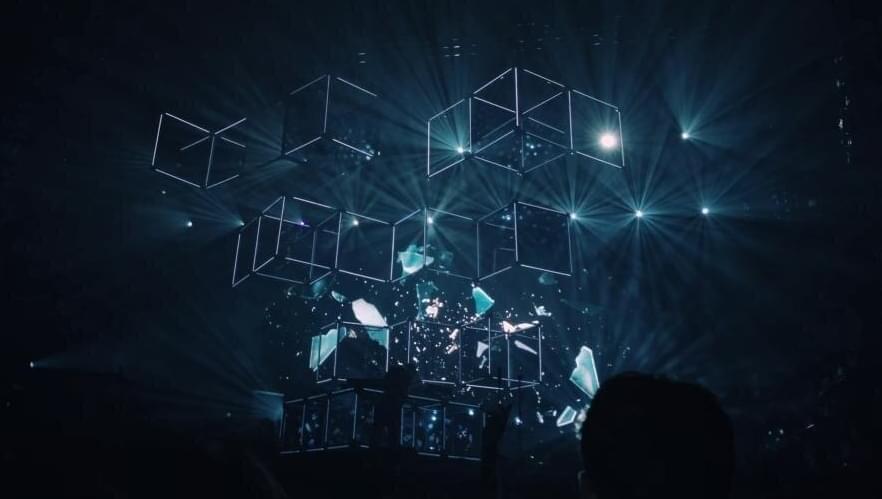
Interactive tools that allow online media users to navigate, save and customize graphs and charts may help them make better sense of the deluge of data that is available online, according to a team of researchers. These tools may help users identify personally relevant information, and check on misinformation, they added.
In a study advancing the concept of “news informatics,” which provides news in the form of data rather than stories, the researchers reported that people found news sites that offered certain interactive tools—such as modality, message and source interactivity tools—to visualize and manipulate data were more engaging than ones without the tools. Modality interactivity includes tools to interact with the content, such as hyperlinks and zoom-ins, while message interactivity focuses on how the users exchange messages with the site. Source interactivity allows users to tailor the information to their individual needs and contribute their own content to the site.
However, it was not the case that more is always better, according to S. Shyam Sundar, James P. Jimirro Professor of Media Effects in the Donald P. Bellisario College of Communications and co-director of the Media Effects Research Laboratory at Penn State. The user’s experience depended on how these tools were combined and how involved they are in the topic, he said.
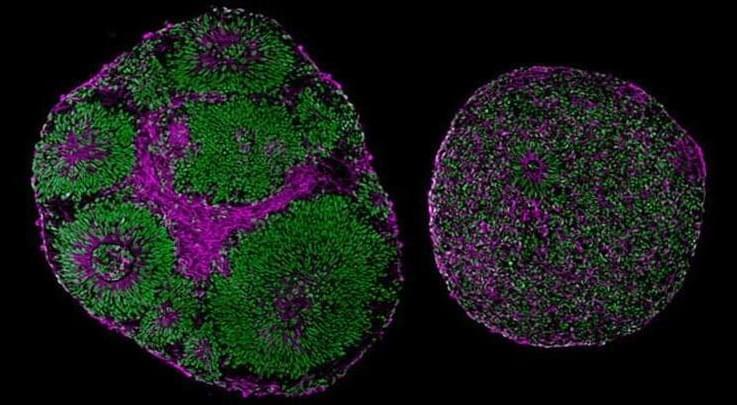
Scientists have uncovered changes in neurological structure that could underlie the autism spectrum disorder known as Pitt Hopkins syndrome, thanks to the help of lab-grown brains developed from human cells.
Furthermore, the researchers were able to recover lost genetic functions through the use of two different gene therapy strategies – hinting at the possibility of treatments that could one day give those with the condition new options in improving their quality of life.
Pitt Hopkins syndrome is a neurodevelopmental condition stemming from a mutation in a DNA-management gene called transcription factor 4 (TCF4). Classed on the autism spectrum on account of its severe impact on motor skills and sensory integration, it’s a complex condition that presents with a range of severities.

What explains the dramatic progress from 20th-century to 21st-century AI, and how can the remaining limitations of current AI be overcome? The widely accepted narrative attributes this progress to massive increases in the quantity of computational and data resources available to support statistical learning in deep artificial neural networks. We show that an additional crucial factor is the development of a new type of computation. Neurocompositional computing adopts two principles that must be simultaneously respected to enable human-level cognition: the principles of Compositionality and Continuity. These have seemed irreconcilable until the recent mathematical discovery that compositionality can be realized not only through discrete methods of symbolic computing, but also through novel forms of continuous neural computing.